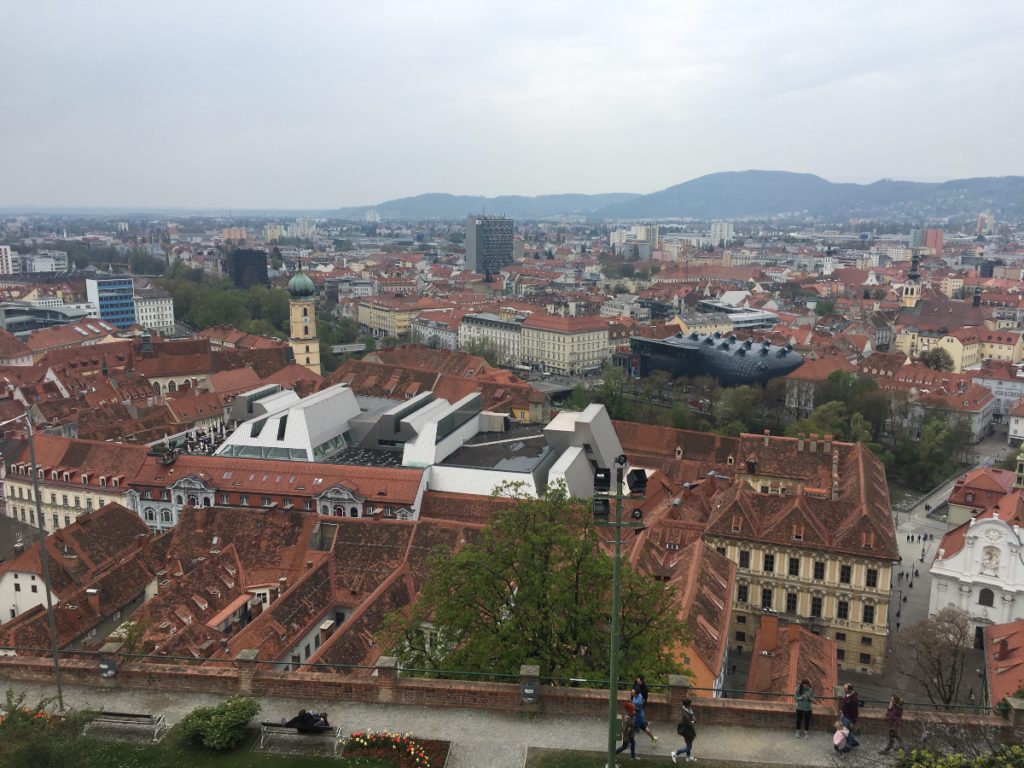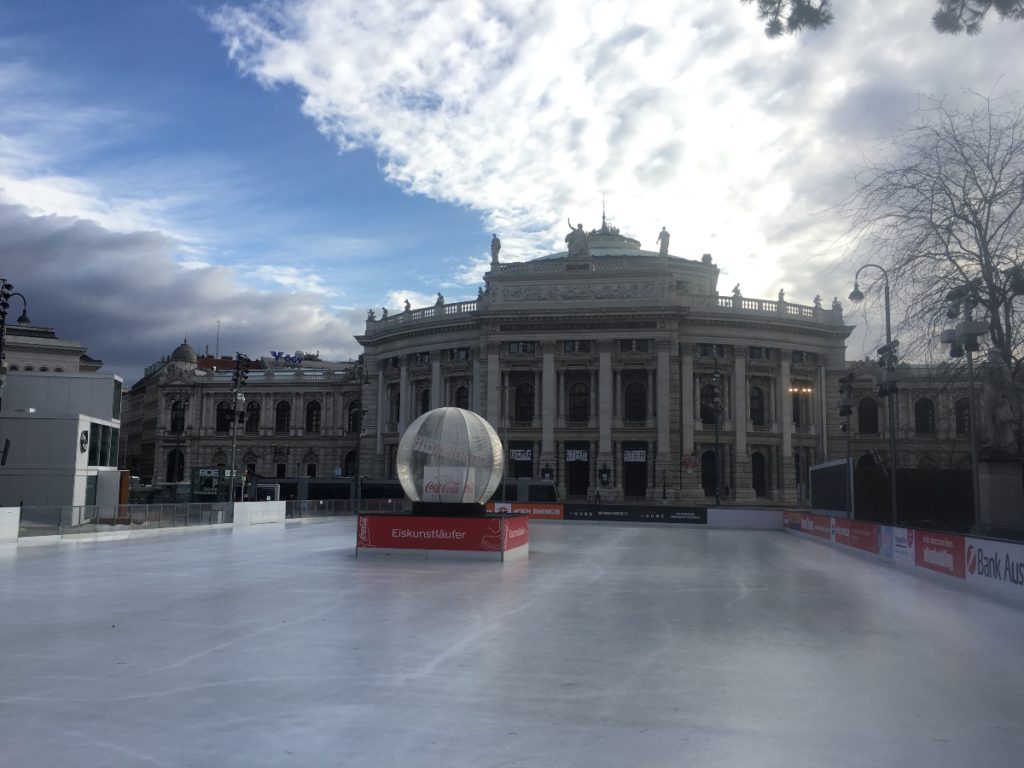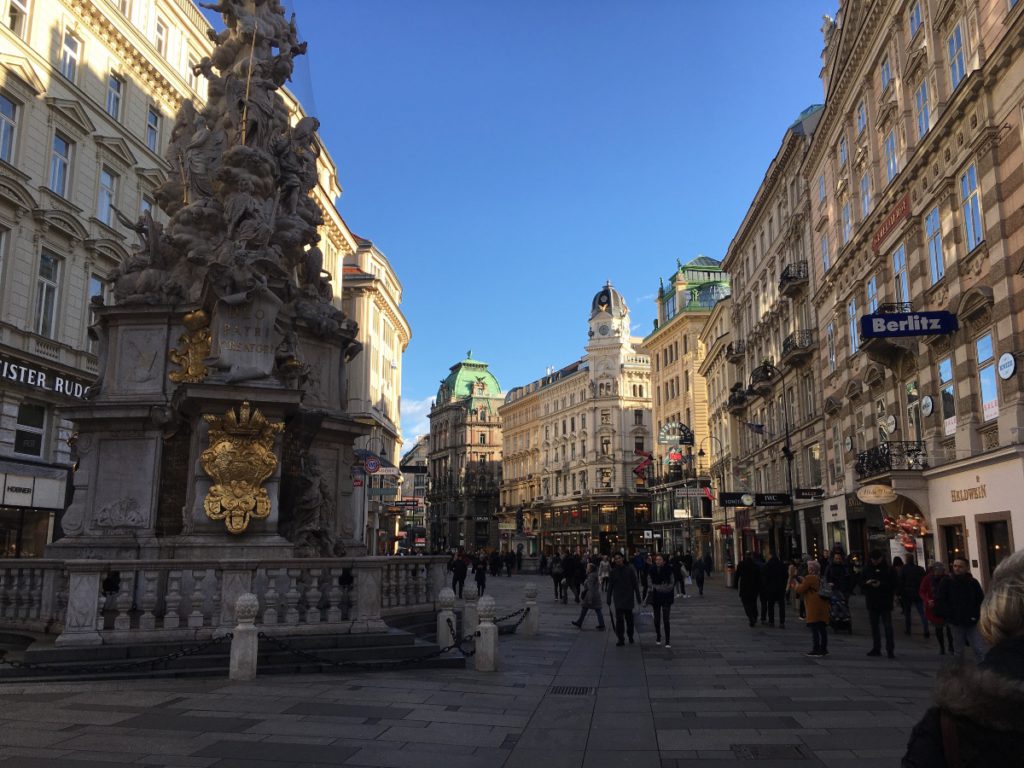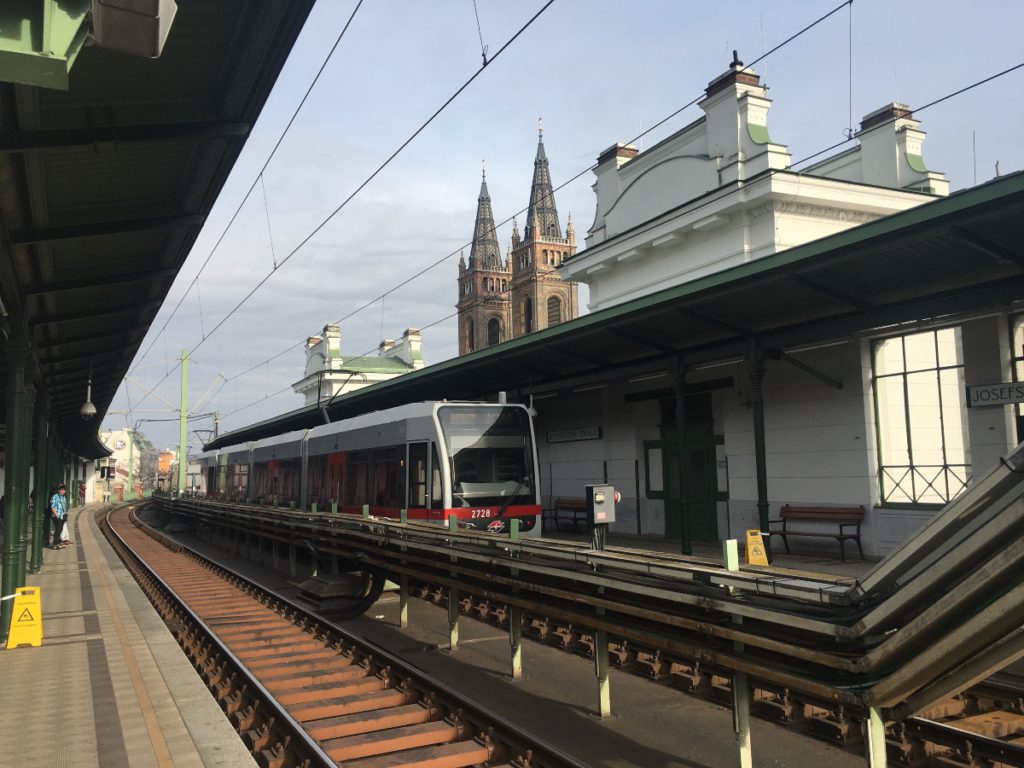Austria’s Work & Holiday Visa for Australians

Austria may be known for its skiing and The Sound of Music. But its capital Vienna is also regularly ranked the world’s most liveable city.
If you’re an Australian aged between 18 and 30 years old, and you’ve completed at least some form of higher education, you can find out why by applying for a working holiday visa to stay in Austria for up to 12 months!
You may work and/or study while in Austria with a Work and Holiday visa, but this should be incidental to your holiday and not the main reason for travelling to Austria.
Since July 2022, Australia and Austria both offer up to 500 Work and Holiday visas per year to citizens of the other country under a reciprocal arrangement.
This page contains useful information about the Austrian Work and Holiday Visa for Australian citizens, as well as living in Austria. It was last updated on 16 February 2024.
Key facts about Austria
- Population: Approx. 9 million
- Official language: German
- Capital city: Vienna (“Wien” in German)
- Largest cities: Vienna, Graz, Linz, Salzburg, Innsbruck
- Name of the country in German: Österreich (or Oesterreich)
- Currency: Euro

Austria Work and Holiday visa requirements
In addition to Australians, Austria offers Working Holiday visas to citizens of Argentina, Canada, Hong Kong, Israel, Chile, Japan, New Zealand, South Korea and Taiwan. Please check the Austrian government’s website for information applicable to citizens of other countries.
To apply for an Austrian Work and Holiday visa as an Australian citizen, you must meet the following requirements:
- Aged between 18-30 years old (inclusive) at the time of application
- Hold an Australian passport valid for at least 3 months after your departure from Austria
- Hold a tertiary/university qualification or have successfully completed at least 2 years of higher education
- Have sufficient funds (at least the equivalent of €1,500 or approx. AUD2,500) to maintain yourself for the first part of your stay in Austria
- Have a return flight ticket (or enough money to buy one)
- Have sufficient travel and health insurance to cover your entire stay
You cannot apply for this visa if you:
- Will be accompanied by children/dependents
- Have previously held an Austrian working holiday visa
- Have previously been expelled from a Schengen country and/or are “considered a threat to public order, internal security or public health”
This information is available on the Austrian embassy’s website (last updated February 2021).
Documents needed to apply for this visa
When applying for an Austrian working holiday visa, you will need to provide the following documents:
- A completed “Austrian Visa D” application form (available on VFS Global website)
- A passport-sized photo less than 6-months old, compliant with ICAO standards
- Australian passport with at least 3 months of validity after your intended departure date from Austria
- Proof of sufficient travel and health insurance to cover your entire length of stay (this must meet the travel insurance criteria for a Schengen visa – see below for more information)
- Original bank statement/s (with banking history shown for at least the last 3 months) proving you have at least the equivalent of €1,500 (approx. AUD2,500) to maintain yourself during the initial period of your stay in Austria
- A flight ticket (or at least a reservation) to Austria
- Proof of a return flight ticket back to Australia, or at least sufficient funds to buy one
- Evidence of holding a tertiary qualification/s or that you have successfully completed at least 2 years of higher education
- If applying through VFS Australia, your appointment confirmation letter
You will need to pay the visa fee of €150 (approx. AUD248), plus any applicable VFS service fees if applying through VFS Australia.
You will also need to provide a self-addressed Express Post 500g A4 envelope (with signature on delivery) for the return of your passport.
Schengen visa travel insurance requirements
You will need to make sure that your travel insurance meets the minimum criteria for Schengen visa applications. Not all travel insurance policies provide adequate cover, so check the Product Disclosure Statement (PDS) carefully before purchasing travel insurance.
Your travel insurance will need to be valid in the entire Schengen Area for the entire length of your stay, and provide a minimum cover of €30,000 (approx. AUD50,000) in all of the following subcategories:
- Medical treatment
- Hospital treatment
- Repatriation for medical reasons
- Death (Repatriation of mortal remains and funeral expenses)
The insurance policy may be issued in Australia or the European Union, but credit card travel insurance is not accepted. When lodging your visa application, you will need to provide the certificate of insurance and the PDS/table of benefits, which clearly show at least €30,000 (or equivalent) of coverage for all of the subcategories listed above.
If your travel insurance cover is deemed inadequate, the embassy will not process your visa application!
See our working holiday travel insurance guide for tips on choosing a suitable policy.

How to apply for an Austrian Work and Holiday visa
You can apply for a Work and Holiday Visa up to 3 months before your intended arrival date in Austria.
It is generally encouraged to lodge your visa application in Australia before you depart. However, as an exception, it is also possible to apply for this visa at some Austrian embassies in Europe.
You can lodge your visa application in person at any of the following locations:
- Any VFS Global visa application centre in Australia (Sydney, Melbourne, Brisbane, Perth, Adelaide & Canberra)
- The Austrian embassies in London, Ljubljana or Bratislava, or the Austrian Consulate General in Munich, during your lawful stay in the UK or Schengen Area.
You will need to make an appointment well in advance.
The Austrian Embassy in Canberra used to accept visa applications directly to the embassy. However, applicants are now encouraged to apply through VFS Global instead.
When applying through VFS Australia, there is an additional service charge. VFS Global acts as an intermediary for the Austrian embassy and will have to forward your documents to the embassy in Canberra by mail.
The Austrian Embassy advises that visa applications generally take up to 15 business days from the time they receive your application, although this could take longer if further checks are necessary. In our experience, the normal processing time is around one week – but this could be longer in peak times.
If applying outside of Australia, anecdotal reports are that the Austrian Consulate General in Munich is helpful and easy to deal with.
Arriving in Austria
After receiving your visa, you can travel to Austria and start looking for a place to live!
Once you’ve moved into your new place of residence in Austria, you are required to register with the local municipal government within 3 business days (this is known as the “Anmeldung”). To do this, you’ll need to fill in a “Meldezettel” form (generally provided by your landlord if you’re moving into a rental property) and take it to your nearest local government office.
You will also need to inform the government if you move house, and de-register when you leave the country. Fines can apply if you don’t do this.
Living in Austria
Vienna is by far the largest city in Austria, and it’s an excellent place to live. The city is modern, with excellent public transport, a great international food scene and lots to do year-round. It also has plenty of history, a city centre with architecture that would rival anywhere else in Europe, and is home to many cultural institutions including galleries and concert halls.

It’s not “cheap” per-se, but for a western European capital city, living in Vienna is relatively affordable. English is widely spoken in Vienna, and in most major cities, although this is less so in the countryside.
The public transport in Vienna, and Austria in general, is simply excellent. The country is well connected, and train travel is fast & affordable.

There are a few smaller regional airports across Austria in cities like Graz, Innsbruck, Salzburg, Klagenfurt and Linz with a few flights to major centres each day. But if you’re planning to use Austria as a base to travel throughout Europe, you should consider living in Vienna.
Vienna International Airport (VIE) is efficient, has high-speed train connections to the city centre, and offers non-stop flight connections all over the world. Vienna is also a hub for several airlines including Austrian Airlines, Wizz Air and Laudamotion meaning airfares are quite competitive.
If you’re interested in skiing, the beautiful Austrian Alps could also be a great place to live. There are a few backpackers working in Austrian ski resorts.

Finally, if you’re planning to move to Austria, you may wish to join the “Aussies in Austria” Facebook group to connect with other Aussies living there.
While best efforts are made to keep this information updated, we do not guarantee its accuracy. If you spot an error, would like to suggest new information to be added or simply have a question, please let us know in the comments and we’ll endeavour to respond or update the article as quickly as possible!




Hi, going backpacking around Europe for a whole year next year with a friend after graduating high school and we were interested in obtaining an Austrain working holiday visa. In regards to this criteria – “Hold a tertiary/university qualification or have successfully completed at least 2 years of higher education” – would we not be valid for this visa and is there anyway around this? Also, this is unrelated, but if we got a working holiday visa in Austria and during our travel to other countries we used WorldPackers – gaining free accomdation through ‘voluntering’ – would we need a visa for that or is that just classed as voluntering?
Thanks.
The requirement to have studied at a university level for at least 2 years is a requirement of this visa and not negotiable, as far as I’m aware. However, perhaps you could have a look at the working holiday visas offered by other nearby countries (e.g. Germany or Slovenia) which don’t require this. See https://workingholiday.au/working-holiday-visa-matrix/
Regarding your other question – this visa only gives you the right to live and work in the country where you applied for the visa (i.e. Austria in this case). If you are working elsewhere, even as a volunteer, I think you would need a valid work visa/permit for the other country.
My partner and I are also looking at getting a visa for Austria Or Eu visa
If we were to say get a German work visa could we then work in Austria or no?
Is it hard to get a EU visa as an Australian
No, working holiday visas are specific to each country. A German work visa only gives you the right to work in Germany, and not other countries such as Austria.
See https://workingholiday.au/europe-working-holiday-visa/
Hi there,
I am looking to work on the Austrian Ski Fields for winter 22/23 – does anyone know of a contact for employment?
Kind regards,
Imogen
Hey,
Planning to be in Austria for the 22/23 winter season and was wondering if a cert 2/3 was enough for the tertiary pre requesite?
Anyone can feel free to contact me and trade info/discuss experience and plans..
Insta: jrdn94_
Cheers
As far as I’m aware, the education requirement is that you have a degree, graduate certificate or diploma, or have completed at least two years of full-time undergraduate university study.
I don’t think a certificate 2 or 3 would be sufficient, but you might wish to contact the Austrian embassy and ask them directly as I could be wrong.
Hey 🙂
I’m wondering if any of you Aussies have applied for the Austrian Working Holiday Visa in Bratislava, Slovakia before? I’ve been told by multiple sources it’s possible but it would be awful to get there and they say you can’t haha
If you know anything about it I’d love to get some advice and hear about your experience
You might also want to ask in the Aussies in Austria Facebook group, as someone there might have done this 🙂
Hey Tahlia,
I am looking at doing the same thing and was wondering if you had success applying at the consulate in Bratislava?
I ended up postponing to this year. Did you end up doing it? If so, let me know how it went
Do you have any idea about the tax system? We’re looking to move to Austria for a year, and while my partner will get a job locally, I will keep working remotely for my Australian company. Will I be required to pay taxes to the Austrian government, the Australian government, or both?
You should probably speak to an accountant as I don’t know the exact answer to this, sorry.
It is possible that you or your Australian employer might be obliged to pay taxes in Austria if you are residing there permanently, although it could depend on which country you’re considered a resident in for tax purposes. In your situation, I suspect you would be considered an Australian tax resident if you’re only moving overseas for a year and continue working for an Australian company, so you would still pay tax in Australia.
This may be of interest: https://wts.com/global/publishing-article/071220_global_mobility~publishing-article?language=en
Also: https://www.oesterreich.gv.at/en/themen/steuern_und_finanzen/arbeitnehmerveranlagung/einkommensteuerrechtliche-regelungen-fuer-grenzgaenger-nach-oesterreich.html
Australia and Austria do have a double taxation agreement which might also be relevant – https://treasury.gov.au/tax-treaties/income-tax-treaties
But as I said, best to speak to an accountant (which I am not).
Hi Matt,
Thanks for the great information above.
With the Working Holiday Visa for Austria, is there a restriction on travel in the Schengen area to 90 days within 180 days, or are you able to come and go as many times as you like within your 12 months?
Also.. you mention “Once you’ve moved into your new place of residence in Austria, you are required to register with the local municipal government within 3 business days”
Does this mean registering with the local government upon 3 business days of landing in Austria, or within 3 days of finding a suitable rental? Is registering short stay accomodation such as a Hotel, Hostel, Airbnb acceptable… or must this be long term?
Thanks for your help! 🙂
In general, you can travel freely within the Schengen Area if you have an Austrian visa but you should spend the majority of your time in Austria. Obviously you can’t live or work in other European countries as the visa is for Austria.
The registration requirement is within 3 business days of moving into a rental etc. where you’ll be staying longer term.
Hi, I was just wondering if there was a certain time frame that you need to enter Austria from the intended entry date supplied on application?
I don’t believe so, but this would eat into the time you’re allowed to stay in Austria as the visa expiry date is typically a year after the intended arrival date.
Hey, I’m travelling and was wondering if it’s still a possibility apply for the Austrian visa from Munich if I am not a German resident? Or where I might be able to access more information regarding how easy this is to do?
Thanks heaps,
Georgia
As far as I know, this is still possible. You don’t necessarily need to be a German resident to apply from Munich, you just need to be in Germany legally.
You may wish to contact the Austrian Consulate General in Munich if you’d like more information or to make an appointment to submit your application.
Hey Matt! Thanks for all the great information. Just wondering if you know if its possible to apply for a Austrian visa D with the purpose of seasonal work employment, from the consulate in Munich, if I’m an Australian citizen? Thanks for your time! 🙂
Hello Darcy, I don’t know the answer to this – sorry. Perhaps you could ask the Austrian embassy in Canberra or the consulate in Munich directly? E.g. you could try submitting the form at the bottom of this page: https://www.bmeia.gv.at/en/austrian-embassy-canberra/travelling-to-austria/entrance-and-residence/visa
Hello! I was wondering if you knew the exact type of documents needed for the proof of funds, for example a bank statement of 3 months? And can a print out of a degree suffice for proof of education?
And does any of these documents need to be signed by a justice of the peace?